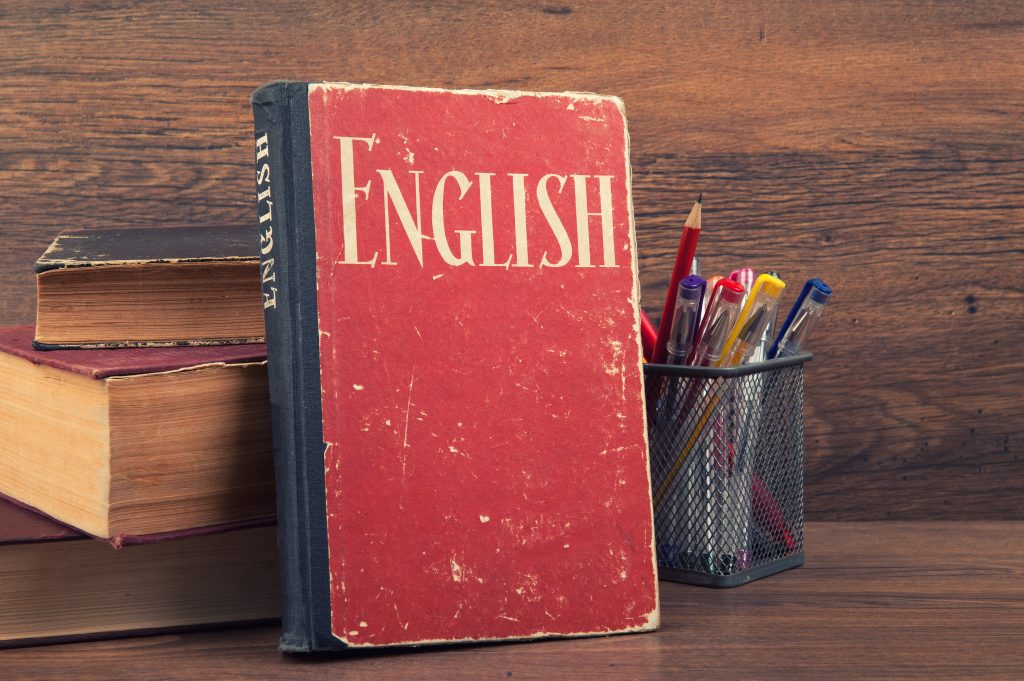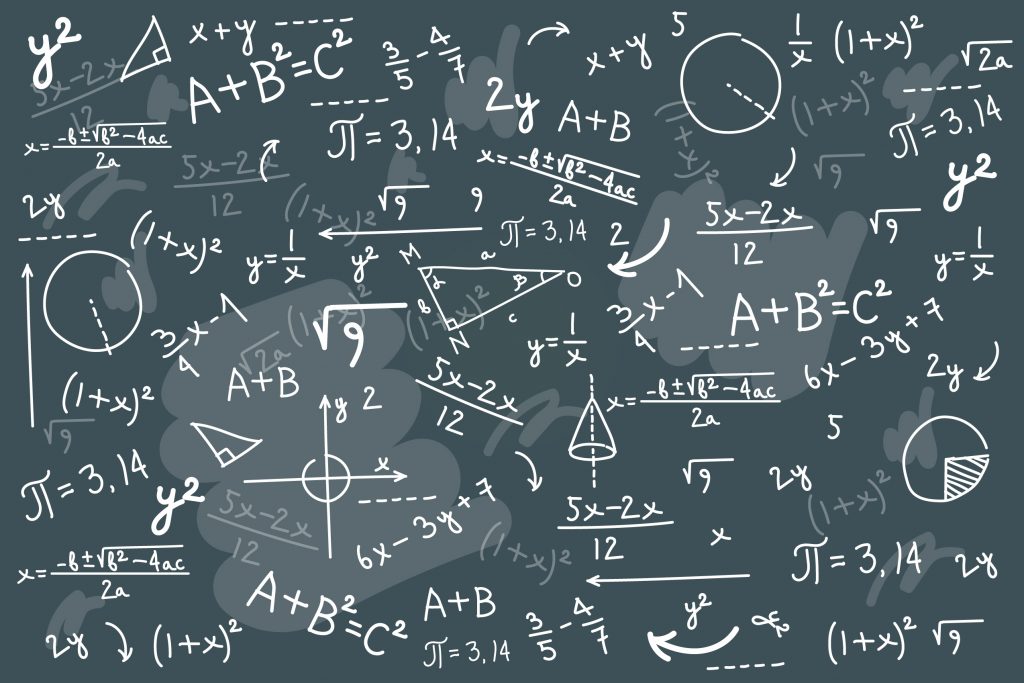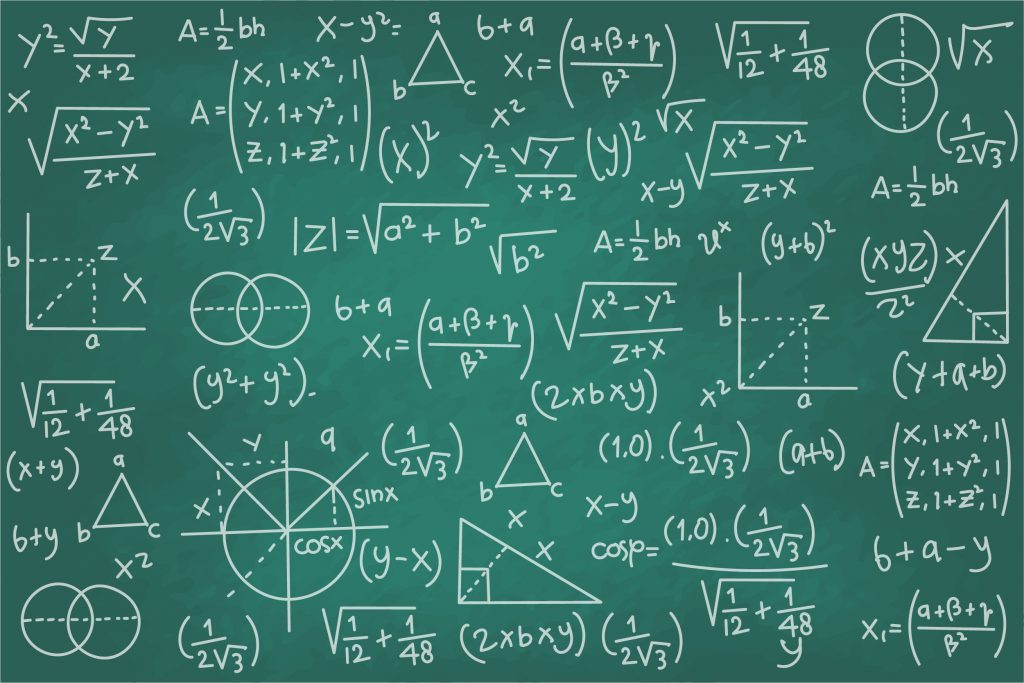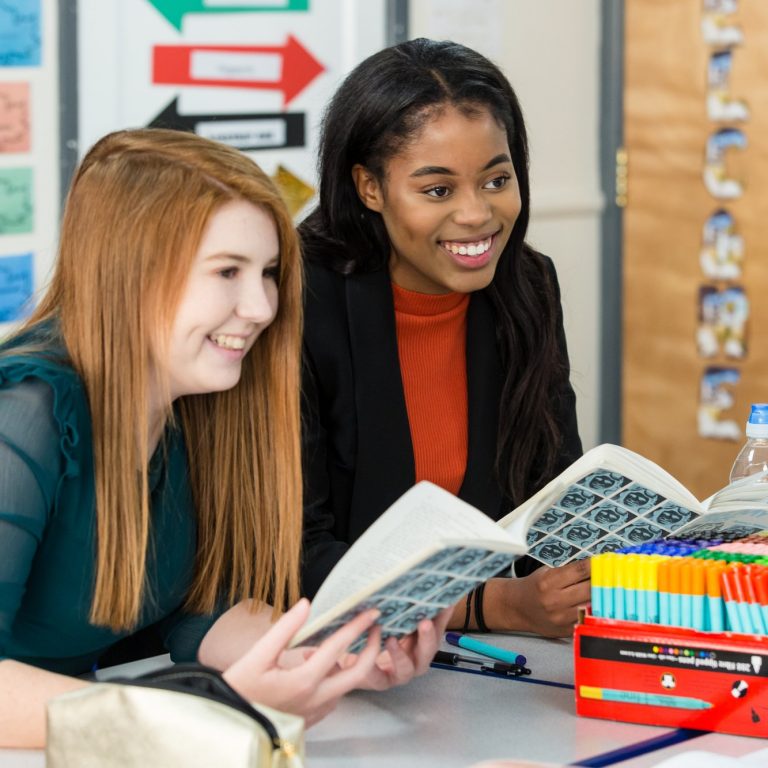The curriculum for Sixth Form at Pitsford School is broad – we offer a range of A levels and BTECs together with the EPQ (Extended Project Qualification) which develops further the breadth of their learning which will support them in the their next step in academia and beyond. For a copy of our full Sixth Form options booklet please contact our Registrar, Mrs Michelle Jackman, registrar@pitsfordschool.com
Sixth Form Curriculum
Most pupils entering the Lower Sixth will choose four subjects to study in the first year, continuing with either all four subjects or three of their chosen subjects in the Upper Sixth.
Please see our A Level Options Booklet for more information on each of the subjects available.
Advanced level courses are available in the following subjects; Art, Biology, Business Studies Chemistry, Economics, English Literature, French, Geography, History, Mathematics, Further Mathematics, Music, Photography, Physics, Spanish and Physical Education. In addition to their subject choices, all Students will undertake an Extended Project Qualification.
Sixth Form life at Pitsford School is built around A levels. Students take 3 or 4 subjects and spend over 70% of their week working in these disciplines. Sixth Formers will not be expected to adhere to a rigid timetable of homework, as part of the skill in Sixth Form is to develop self-discipline and direction of study, but generally speaking at least four hours per week per subject will be required to keep up with work in each A level studied.
In addition to timetabled lessons, at Pitsford the Sixth Form have allocated ‘individual study periods’. This takes place in the Michael Robinson Memorial Library or in the Sixth Form Centre in Year 12 and in Year 13 each Sixth Form has an allocated Study Room which they can also use for their independent study.
The timetable for the Sixth Form is: Each A Level is allocated 7 periods per week, arranged in five teaching blocks for time-tabling purposes (for minority subjects, this may vary).
The sixth teaching block of 5 periods will include:
Extended Project Core Skills Programme (2 periods per week)
Games (3 periods per week)
A Sixth Former studying 4 A Levels will normally have seven private study periods per week.
In the Upper Sixth most students will focus on 3 A levels. They will also be allocated their own Study Room (usually shared with one other student) which they can use as their base in school and a place they can focus their energies towards supporting their independent study. The ballot for the allocation of Study Rooms is made in the Summer Term of Year 12.
Art & Design

Art & Design
The A Level Art course encourages an adventurous and enquiring approach to art and design. If you enjoy working creatively and have a flair for drawing, painting, creating wild and wonderful things in 3D materials or just experimenting with different techniques and materials you haven’t used before then you could find this course very fulfilling.
Pupils have the opportunity to experiment with a range of materials and media; successfully demonstrate and create artwork that embraces a range of ideas and outcomes in a variety of materials. Look at Art and Design concepts historically and through contemporary artists of today. Visits to Museums/Galleries or appropriate workshops are made to provide first-hand experience of artwork and artefacts relevant to pupils needs and requirements.
Biology

Biology
The Biology A Level OCR specification has been designed so that Year 12 and Year 13 are co-teachable. The course is delivered using a combination of teaching approaches. The practical endorsements are delivered where relevant to the course content and are examined through the questions set in all three written papers.
Candidates completing Year 12 only will be examined at the end of the first year of the course. Year 13 candidates will sit all of the three written papers at the end of the second year of the course.
The factual content of the Biology course is high; pupils wishing to study Biology need to consider carefully their aptitude for factual learning that can then be applied to the data interpretation questions that form the bulk of the written papers.
Module 1: Development of practical skills in Biology
1.1 Practical skills assessed in a written examination
1.2 Practical skills assessed in the practical endorsement
The specification content relates to the practical skills learners are expected gain throughout the course when assessed throughout the written examination and also through the practical endorsement.
Module 2: Foundations in Biology
2.1 Cell structure
2.2 Biological molecules
2.3 Nucleotides and nucleic acids
2.4 Enzymes
2.5 Biological membranes
2.6 Cell division, cell diversity and cellular organisation
Module 3: Exchange and transport
3.1 Exchange surfaces
3.2 Transport in animals
3.3 Transport in plants
Module 4: Biodiversity, evolution and disease
4.1 Communicable diseases, disease prevention and the immune system
4.2 Biodiversity
4.3 Classification and evolution
Module 5: Communication, homeostasis and energy
5.1 Communication and homeostasis
5.2 Excretion as an example of homeostatic control
5.3 Neuronal communication
5.4 Hormonal communication
5.5 Plant and animal responses
5.6 Photosynthesis
5.7 Respiration Module 6: Genetics, evolution and eco systems
6.1 Cellular control
6.2 Patterns of inheritance
6.3 Manipulating genomes
6.4 Cloning and biotechnology
6.5 Ecosystems
6.6 Populations and sustainability
Business Studies

Business Studies
A Level Business Studies is designed to engage pupils through topics and issues that are relevant in today’s society, such as digital technology, business ethics and globalisation. Students will develop the knowledge and skills needed to analyse data, think critically about issues and make informed decisions; all skills that are needed for further study and employment.
Question papers use a variety of assessment styles including multiple choice, short answer, data response, essay and case studies. Real life case studies will be used whenever possible to make it easier for students to relate to and apply their knowledge and skills developed though the course.
What is business?
Understanding the nature and purpose of business, different business forms and the external environments they operate in.
Managers, Leadership and Decision Making
Understanding decision making and the input of stakeholders
Decision Making
Understanding how to use decision making to improve performance in: markets, operational areas, finance and human resource.
Chemistry

Chemistry
A Level Chemistry will try to give you the skills and understanding to make decisions about the way chemistry affects your everyday life by applying concepts into contemporary areas of chemistry. In addition, a GCE in Chemistry allows you to develop a range of generic skills. For instance, a successful GCE level chemist will be an effective problem-solver and be able to communicate efficiently both orally and with the written word. Handling data will be a key part of your work, allowing you to demonstrate information retrieval skills as well as use of numeracy and ICT. You will build up a range of practical skills that require creativity and accuracy as well as developing a firm understanding of health and safety issues. As chemistry is a subject in which much learning stems from experimental work it is likely that you will need to work effectively as part of a group, developing team participation and leadership skills.
Module 1: Development of Practical Skills in Chemistry
- Practical skills assessed in a written examination
- Practical skills assessed in the separate practical endorsement
Module 2: Foundations in Chemistry
- Atoms, compounds, molecules and equations
- Amount of substance
- Acid–base and redox reactions
- Electrons, bonding and structure
Module 3: Periodic Table and Energy
- The periodic table and periodici-ty
- Group 2 and the halogens
- Qualitative analysis
- Enthalpy changes
- Reaction rates and equilibrium (qualitative)
Module 4: Core Organic Chemistry
- Basic concepts
- Hydrocarbons
- Alcohols and haloalkanes
- Organic synthesis
- Analytical techniques (IR and MS)
Module 5: Physical chemistry and Transition Elements
Reaction rates and equilibrium (quantitative)
- pH and buffers
- Enthalpy, entropy & free energy
- Redox and electrode potentials
- Transition elements
Module 6: Organic Chemistry and Analysis
- Aromatic compounds
- Carbonyl compounds
- Carboxylic acids and esters
- Nitrogen compounds
- Polymers
- Organic synthesis
- Chromatography & spectroscopy
Classics

Classics
A Level Classical Civilisation: Classical Civilisation focuses on the civilisations of Greece and Rome, and is a wide ranging subject involving the study of literature, visual and material culture, politics, ancient thought and ideas, and the ancient historical context.
Classical Civilisation is listed on UCL’s list of preferred A Level subjects and it is also listed on Trinity College, Cambridge’s list of Generally Suitable Arts A Levels. It is also listed as a useful subject for degrees in Classical Studies and Philosophy in the Russell Group ‘Informed Choices’ document.
Not only will you acquire specific Classical knowledge, but also important transferable skills such as analysing sources and developing independent, critical and evaluative approaches. You learn to formulate and support an argument and develop a valuable understanding of cultures very different to your own.
Component 1: The World of the Hero
This is a compulsory component consisting of an in-depth study of: one of Homer’s Iliad or Odyssey and Virgil’s Aeneid
Component 2: Culture and the Arts
Learners must study one component in this component group, chosen from:
- Imperial Image
- Invention of the Barbarian
- Greek Art
- Greek Theatre
Component 3: Beliefs and Ideas
Learners must study one component in this component group, chosen from:
- Greek Religion
- Love and Relationships
- Politics of the Late Republic
- Democracy and the Athenians
Economics

Economics
A Level Economics is a study of how mankind organises resources to raise our standard of living. The course addresses a wide range of contemporary issues:
This course has no coursework or controlled assessment units. It is not necessary for students to have studied GCSE Economics before starting work on this specification and no prior knowledge of economics is necessary.
Unit 1: The Operation of Markets and Market Failure
20 multiple choice questions and a data response paper.
Topics include:
How free markets work and why Governments must interfere to address problems like: the over consumption of alcohol and fast food, the under consumption of education and under provision health care, environmental problems.
Unit 2: The National Economy in a Global Market
20 multiple choice questions and a data response paper.
Topics include:
The causes of economic problems like slow growth, inflation unemployment and how governments can seek to address the problems.
Unit 3: Business Economics and the Distribution of Income
Topics include:
How businesses in both the private and public sector behave.
Why wealth and wage rates differ so widely in the UK economy.
How governments can exercise control on the excesses of the market.
Unit 4: The National and International Economy
Topics include:
Why China continues to grow rapidly whilst Europe stumbles along.
Whether the Eurozone has any future.
The danger of inflation.
Both units are tested via essays, data response, multiple choice and with case study materials.
English Literature

English Literature
You should choose English Literature if you:
- Like to engage in the lives, voices, narratives and worlds of others.
- Want to read some of the greatest literary works ever written.
- Want to cultivate a love of language and appreciate the beauty of the writer’s craft.
- Can confidently ‘hold your own’ in debates and
- Are engaged, interested and passionate about popular culture and world events.
- Want to study an A-level that facilitates a host of prestigious career paths.
- Want to study an A-level that is rigorous, highly academic and highly regarded.
- Want your imagination to flourish.
One Flew Over the Cuckoo’s Nest—Ken Kesey
Ken Kesey’s extraordinary novel is an exuberant, ribald and devastatingly honest portrayal of the boundaries between sanity and madness. Set in Oregon psychiatric hospital, the narrative serves as a study of institutional processes and the human mind as well as a critique of behaviourism and a tribute to individualistic principles.
All My Sons– Miller
A poignant, heart wrenching and thought provoking play that students always enjoy. The text shines the spotlight on the fatal consequences of guilt and greed. Described by many critics as a ‘rollicking good story.’
Feminine Gospels– Duffy
A post 2000 collection of raw, emotive and controversial poetry that seeks to provoke a strong reaction from the reader. Duffy’s collection of tall tales offers what some might call a collection of adult fairy stories. The confessional tone ensures you feel part of the poet laureate’s secret narrative. This collection allows you to jump head first into a world of celebrities, fairies, corpses and girls next door – it’s as bonkers as it is brilliant!
Othello-Shakespeare
The classic Shakespearian tragedy centred on the downfall of a successful and celebrated hero. Often described as both ‘fast moving’ and ‘devastating’ – this is one of Shakespeare’s most atmospheric and influential plays. In this play Shakespeare exposes the poisonous consequences of fear and jealousy.
The Great Gatsby– Fitzgerald
Described as a ‘brilliant fable of the hedonistic excess and tragic circumstances of 1920s America.
‘A text that artfully juxtaposes wealth, glamour and decadence against a bleak reality. Fitzgerald hides dark secrets under a façade of jazz, glitz and passion. This text essentially offers a timeless insight into human nature and deservedly features the word GREAT in its title.
You will also complete:
A comparative critical study of two texts, at least one of which must have been written pre-1900. This will allow you to explore and critically engage with texts of your own choosing so let your creativity and originality flourish
English Language

English Language
A-level English Language specification offers opportunities for students to develop their subject expertise by engaging creatively and critically with a wide range of texts and discourses. Students will create texts and reflect critically on their own processes of production, while analysing the texts produced by others. The specification explores the study of English Language both as a medium of communication and as a topic in its own right, with an emphasis on the ability of students to pursue lines of enquiry, debate different views, and work independently to research aspects of language in use. Language is seen as a creative tool for expression and social connection, as well as for individual cognition. The study of language as a symbolic system used to assert power in society is also fundamental to the scope of this specification.
The methods of analysis appropriate to the fields of English language/linguistics underpin all the elements of this specification, and these are applied to distinctive topic areas. This means that, for teaching purposes, there is a common core that all teachers and students need to understand but also discrete areas so that you can teach to your own specialisms and interests. There is also scope for students to pursue their own independent lines of enquiry and topics for writing, with support from their teachers, in the non-exam assessment.
French

French
A world language: more than 200 million people speak French in 68 states on the five continents.
A language for higher education: A good level of French makes you eligible for courses in renowned French universities and business schools, ranked amongst the highest in the world. The Erasmus programme also offers placements and exchanges between UK and French universities.
A language for the job market: An ability to speak French offers many opportunities on the UK job market with multinational companies seeking French speaking employees. France is the world’s fifth biggest economy and number-three destination for foreign investment. It is the second most sought after language by UK employers.
The other language of international relations: French is a working and official language of the United Nations, the European Union, UNESCO, NATO, the International Olympic Committee, the International Red Cross and international courts.
A language for culture and travel: French is the international language of cooking, fashion, theatre, the visual arts, dance and architecture and offers access to great works of literature, cinema and music. It is a highly recommended subject to study in addition to Art, Music, English and Humanities.
Students must study the following themes and sub-themes in relation to at least one French speaking country.
Year 12
Aspects of French-speaking society: current trends.
- The changing nature of family (La famille en voie de change-ment)
- The ‘cyber-society (La cyberso-ciété)
- The place of voluntary work (Le rôle du bénévolat)
Artistic culture
- A culture proud of its heritage (Une culture fière de son patrimoine)
- Contemporary francophone contemporaine)
- Cinema: the 7th art form (Cinéma: le septième art)
A Film study
Year 13
Aspects of French-speaking society: current trends.
- Positive features of a diverse society (Les aspects positifs d’une société diverse)
- Life for the marginalised (Quelle vie pour les marginali-sés)
- How criminals are treated (comment on traite les criminels).
Aspects of political life
- Teenagers, the right to vote and political commitment (Les ados, le droit de vote et ’engagement politique)
- Demonstrations, strikes – who holds the power? (manifestations grèves – à qui le pouvoir?)
- Politics and immigration (La politique et l’immigration)
Geography

Geography
A Level Geography encourages pupils to apply geographical knowledge, theory and skills to the world around them. In turn this will enable pupils to develop a critical understanding of the world’s people, places and environments in the 21st century. Pupils should be able to develop both knowledge and understanding of contemporary geographical concepts together with transferable skills that will enable pupils to progress to higher education and a range of employment opportunities. The focus of the specification is to develop an enthusiasm for and competence in geography by using contemporary real-world contexts, from a range of specified spatial scales, and through engagement with and practical application of geographical skills and techniques in the field. The specification draws on both physical and human geography, explores people-environment interactions and encourages development of fieldwork at the local level to enable pupils to pose enquiry questions.
Year 12 is assessed through 2 components: Changing Landscapes and Changing Places. Year 13 is assessed through 4 components: Changing Landscapes and Changing Places, Global Systems and Global Governance, Contemporary Themes in Geography and an Independent Investigation.
Changing Landscapes: The theme of this component is glacial landscapes and involves the study of glaciated and formerly glaciated landscapes shaped by valley glaciers and ice sheets. Study will take place within a systems framework, focusing on spatial and temporal variations in the geomorphological processes that operate within glaciated landscapes and how the flows of energy and movement of materials combine to create specific landforms.
Changing Places: This theme focuses on place and its dynamic nature. While the UK is the context for study, appropriate examples from alternative national contexts are used. Places are dynamic because the population, society, and the economy upon which they depend and the environment in which they are situated are in a constant state of flux.
Global Systems and Global Governance: The global systems theme is based on the physical processes which control the cycling of both water and carbon between land, oceans and the atmosphere; it covers global change and challenges. The focus is initially on processes and patterns of global migration, a global flow which has historically had a major impact on most countries. This is followed by a study of the global governance of the Earth’s oceans.
Contemporary Themes in Geography: This theme provides opportunities to study tectonic hazards and a number of optional topics including ecosystems, weather and climate, and economic growth and challenge.
Independent Investigation: This based on a question or issue defined and developed by the pupil individually to address aims, questions, and / or hypotheses. Pupils support their research area through further background material using secondary data and an appropriate selection and presentation of primary data, incorporating appropriate geographical skills. Fieldwork for this component is completed on location during the Summer term.
German

German
Whatever plans you may have for the future, a knowledge of German will increase your options:
- Knowing the language of your German business partners improves your relations and therefore your chances for effective communication and success and it can increase your job opportunities with German and foreign companies in the UK. In business, diplomacy and tourism, Germany stands second only to English in Western Europe and in Eastern Europe holds first place.
- German is the second most commonly used scientific language. Germany is the third largest contributor to research and development and offers research fellowships to scientists from abroad.
- Germany offers a generous number of scholarships and other support to study in Germany; it is fourth most popular choice for Further Education, after the US, UK and Australia. Germany has recently abolished tuition fees for al university students including international students.
- Working holiday visas are available for young foreigners.
- A wide range of exchange programmes exists for both school and university students between Germany and other countries.
History

History
History A Level encourages you to understand and think intelligently about aspects of modern history. It involves much more than just learning vast amounts of factual information. Of course, there is a lot to learn and you will immediately notice in how much greater detail a topic is covered than at GCSE level. However, what students find most rewarding in History is the attempt to understand, evaluate and analyse the past. Questions at A Level will never just ask you to recount what happened. They are designed to make you think critically about the material and to formulate your own assessments. You will, for example, learn to make judgements about the policies of individual leaders and nations, or to analyse the causes of a particular event and evaluate the importance of different factors.
Unit 1 (Breadth Study):
The Tudors, England 1485-1547
This unit focuses on the reigns of Henry VII, Henry VIII, Edward VI, Mary I and Elizabeth I. It will examine the threats of the early Tudor dynasty, the aims and characters of the monarchs, foreign policy and domestic policy including religion.
This unit is assessed by a 2 hour 30 minute exam which involves a question on historical extracts and a choice of two out of three essays.
Unit 2 (Depth Study):
The Cold War, c.1945-1963
This unit examines the origins of the Cold War, the nature of capitalism and communism, the Iron Curtain, the Berlin Blockade, the impact of the Truman Doctrine and Marshall Aid, the spread of communism, Stalin and Khrushchev, the Berlin Wall and Cuban Missile Crisis. Then it examines the détente in the late 1960s and 1970s, the Vietnam War, Sino-American relations, the Brezhnev Doctrine, wars in the Middle-East, the Regan administration and the role of Gorbachev and the collapse of communism in Eastern Europe.
This unit is assessed by a 2 hour 30 minute exam which involves a question on historical sources and a choice of two out of three essays.
Unit 3
(Non-Examined Assessment):
Historical Investigation
Students will complete a 3500-4000 word essay on a topic based on Russia c.1850-1945.
This will cover material on Tsarist Russia, the 1905 Revolution, the First World War and 1917 Revolutions, the Bolshevik seizure of power, the Russian Civil War and the USSR under Lenin and Stalin
Mathematics

Mathematics
Although it may seem a long way off, one day, you will be looking for a job. Your transferable skills will be of particular interest to potential employers, who will be concerned with the overall contribution you can make to their organisation. So what are these skills?
- Analytical skills; clear thinking, attention to detail, ability to follow complex reasoning.
- Communication skills; ability to communicate an argument precisely and logically.
- Investigative skills; knowing where and how to find information.
- Learning skills; ability to understand difficult concepts and apply them to a problem.
Choosing Mathematics because you want to will get you a better grade than choosing it because you have to.
Year 12
Each Unit is assessed with a 90 minute exam at the end of the Lower Sixth.
Component 01 50% 75 marks (50 for Pure & 25 for Statistics)
Component 02 50% 75 marks (50 for Pure & 25 for Mechanics)
Pure Maths: Proof, surds, indices, quadratic functions, inequalities, polynomials and curve sketching, transformations of graphs, circles, coordinate geometry, binomial expansion, trigonometry, logarithms, calculus and vectors.
Statistics: Sampling, single variable data, bivariate data, measures of central tendency and spread, outliers, probability, discrete probability distributions and hypothesis testing.
Mechanics: SI units, kinematics, constant acceleration, non uniform acceleration, Newton’s laws and friction.
Year 13
Each Unit is assessed with a 120 minute exam at the end of the Upper Sixth.
Component 01: 33.3% (All for Pure Mathematics)
Component 02: 33.3% 100 marks (50 for Pure Mathematics & 50 for Statistics)
Component 03: 33.3% 100 marks (50 for Pure Mathematics & 50 for Mechanics)
The material is extended and the following new topics are introduced:
- Pure Maths: Sequences, numerical methods.
- Statistics: Continuous random variables, Normal distribution and Venn diagrams.
- Mechanics: Calculus in kinematics, connected particles and equilibrium
Further Mathematics

Further Mathematics
The Mathematics course is designed to extend the knowledge of mathematicians beyond the standard A Level course and consists of three branches of mathematics; Pure, Discrete and Statistics.
Pure Mathematics is the branches of mathematics that study and develop the principles of mathematics for their own sake rather than immediate usefulness. The topics are algebraic in nature and often overlap with undergraduate level mathematics.
Discrete Mathematics is a discipline that deals with the application of advanced analytical methods to help make better decisions. It is often concerned with determining the maximum (of profit, performance or yield) or minimum (of loss, risk or cost) of some real world objective. Originating in military efforts during WWII, its techniques have grown to concern problems in a variety of industries.
Statistics is the study of the collection, organisation, analysis, interpretation and presentation of data. It also includes combinatorics and probability distributions for discrete random variables.
A Level Further Mathematics is a qualification which both broadens and deepens the mathematics covered in A Level Mathematics. Further Mathematics is taken alongside an A Level in Mathematics.
Jade Eyles, grade A, Further Mathematician – “Further Mathematics makes the transition from sixth form to university courses that are reliant on mathematics much easier as more of the first year course content is familiar.”
Further Mathematics qualifications are highly regarded and are warmly welcomed by universities. Students who take Further Mathematics are really demonstrating a strong commitment to their studies, as well as learning mathematics that is very useful for any mathematically rich degree. Some prestigious university courses require you to have a Further Mathematics qualification and others may adjust their grade requirements more favourably to students with Further Mathematics.
Each unit is assessed with a 70 minutes exam worth 60 marks.
Pure Core (Y531): 33.3%
Statistics (Y532): 33.3%
Discrete Maths (Y534): 33.3%
Pure Core: Proof, complex numbers, matrix algebra, vectors and roots of polynomials.
Statistics: Permutations and combinations, discrete random variables, chi squared analysis, non parametric tests, correlation and linear regression.
Discrete Maths: Graphs and networks, algorithms, critical path analysis, linear programming, permutations and combinations.
Each unit is assessed with a 90 minute exam worth 75 marks.
Pure Core 1 (Y540): 25%
Pure Core 2 (Y541): 25%
Statistics (Y542): 25%
Discrete Maths (Y544): 25%
The material above is extended and the following new topics are introduced:
Pure Core: Proof, complex numbers, 3 x 3 matrices, 3D vectors, series summation, hyberbolics, calculus of inverse trigonometrical functions, polar coordinates and differential equations.
Statistics: Continuous random variables, central limit theory, confidence intervals, hypothesis testing, approximations to the Normal distribution.
Music

Music
The course provides an excellent basis for lifelong learning and for higher education courses. Pupils completing the course will have gained a depth of understanding in Music which prepares them for university or college courses.
The course is designed to enable students to experience a wide range of musical skills including performing, composing and analysing, as well as developing an understanding of the historical and contextual uses of music.
Year 12 :
Performing 30% This is a final performance of 6-8 minutes, externally assessed by visiting examiner
Composing – 30% This is an externally assessed unit through submission of two compositions with a total length of 4 and ½ – 7 minutes
Appraising – 40% Assessed through written examination of 1 hour 30 minutes
A minimum of two pieces; either as a soloist or in an ensemble or in combination of both. One piece must reflect the musical characteristics of an area of study.
Two compositions:
1 reflecting the musical techniques and conventions of Western Classical tradition and following a brief set in September
2: free composition
Two areas of study:
1 –compulsory area of study
A.The Western Classical Tradition (The Development of the Symphony 1750-1830)
2 choose a further area from:
B: Rock and Pop
or
C: Musical Theatre or D: Jazz
Year 13
The A level course is assessed as follows:
Option A specialism performance or
Option B specialism Composition
Performing – externally assessed to visiting examiner
Composing – externally assessed
Appraising – 40% Assessed through written examination of 2 hour 15 mins
Option A 35% – 10-12 minutes 3 pieces as soloist / ensemble or combination. Two pieces in different styles reflecting two areas of study must be pre-sented.
OR
Option B 25% – 6-8 minutes
2 pieces as a soloist / ensemble or combination. One piece must reflect the characteristics of an area of study.
Option A – 25% – 2 compositions – 4 -6 minutes
One reflecting the musical techniques and conventions of The Western Classical Tradition and from a set brief.
Second is a free composition.
OR
Option B –35% 3 compositions – 8-10 minutes
1). reflecting the musical techniques and conventions of The Western Classical Tradition and from a set brief.
2).reflecting a different area of study.
3).Third is free composition.
Three areas of study:
1 :compulsory area of study A
The Western Classical Tradition (The Development of the Symphony 1750-1830)
2 :choose a further area from:
B: Rock and Pop or
C: Musical Theatre or D: Jazz
3: choose either
E: Into the Twentieth Century
Or
F: Into the Twenty First Century
Physical Education

Physical Education
Physical Education BTEC Level 3 National Extended Certificate in Sport: Sport and Exercise Science has become a key industry contributing around £20.3 billion to the economy.
The BTEC course provides excellent preparation for careers within the sports and fitness industry and can support entry into higher education with UCAS points awarded. BTEC Level 3 Nationals are an alternative to A Levels and are accepted as an entry requirement for universities and further education colleges. The course we offer is equivalent to one A Level and has grades of Pass, Merit, Distinction and a starred Distinction. The BTEC course will follow on naturally from GCSE PE although it is not necessary to have studied GCSE PE. The course combines well with a large number of subjects at A Level as it develops a wide range of disciplines including problem solving skills, use of critical thinking, communication, team work and leadership.
Lessons will be mainly theory and where ever possible the underpinning theory will also be demonstrated in a practical context. There will be a variety of assessment methods used including presentations, internal assessment tasks and external examinations.
Physics

Physics
The subject entails practical work and theory, with a strong mathematical element. It is advisable to study Mathematics with Physics as they complement each other, although it is not absolutely necessary.
Pupils who enjoy the subject are often the technically-minded, although a keen interest in the physical world and why things happen or work is equally good. A good indicator as to suitability is “Did you enjoy the more mathematical sections of GCSE Physics”. The nature of A Level is quite different from GCSE, in that much less time is spent looking at “uses” of Physics, much more is spent on the key concepts.
There is no coursework or controlled assessment. Practical and Data Handling Skills are tested by written examination. The questions will be based on twelve prescribed practical experiments which all pupils will be expected to have carried out, and be familiar with.
Year 12
Content is split into six teaching Modules:
1.Development of practical skills in physics
2.Foundations of physics
3 Forces and motion
4 Electrons, waves and photons
Year 13
5 Newtonian world and astrophysics
6 Particles and medical physics
Assessment is by written exams as follows:
Paper 1: Modelling physics 2 hours 15 min, 37% of A Level, Content covering modules 1, 2, 3 and 5
Paper 2: Exploring physics
2 hours 15 min, 37% of A Level, Content covering modules 1, 2, 4 and 6.
Paper 3: Unified physics
1 hours 15 min, 26% of A Level, Content covering modules 1, 2, 4 and 6.
All exams are taken at the end of Year 13.
Assessment of practical skills will take place throughout the course
Spanish

Spanish
Whatever your plans are for the future, studying Spanish at A Level will widen your options considerably:
- 426 million people speak Spanish and it is the official language in 21 countries.
- Spanish is the second most studied language worldwide and the fourth most widely studied language in Western Europe. It is also the second language in international communication.
- Many Spanish speaking countries are experiencing economic growth, and becoming increasingly
prominent world trade partners. Political and economic agreements such as NAFTA, MERCOSUR and the G3 Free Trade Agreement have helped propel that growth.
- Spanish speaking culture continues to have a growing influence around the world.
- Learning Spanish is not only becoming a necessity in our global economy, it can also be very enjoyable and personally rewarding.
Year 12
Students must study the following themes in relation to at least one Spanish-speaking country.
Aspects of Hispanic society:
- Modern and traditional values (Los valores tradicionales y modernos)
- Cyberspace (El ciberespacio)
- Equal rights (La igualdad de los sexos
Artistic culture:
- Modern day idols (La influencia de los ídolos)
- Spanish regional identity (La identidad regional en España)
- Cultural heritage (El patrimonio cultural)
A film study
Assessments:
Paper 1: Listening, reading and writing
Written exam: 1hr 45 minutes, 45%
Paper 2: Writing based on film study 1hr 30 minutes, 25%
Paper 3: Speaking oral exam 12 to 14 minutes, 30%
Year 13
Students must study the following themes in relation to at least one Spanish-speaking country.
Multiculturalism in Hispanic society:
- Immigration (La immigración)
- Racism (El racismo)
- Integration (La convivencia)
Aspects of political life:
- Today’s youth, tomorrow’s citizens (Jóvenes de hoy, ciudadanos del mañana)
- Monarchies and dictatorships (Monarquías y dictaduras)
- Popular movements (Movimientos populares)
Study of literary text
Assessments:
Paper 1: Listening, reading and writing
Written exams 2hr30 minutes, 50%
Paper 2: Writing based on literary text 2hrs, 20%
Paper 3: Speaking oral exam 21 to 23 minutes, 30%





